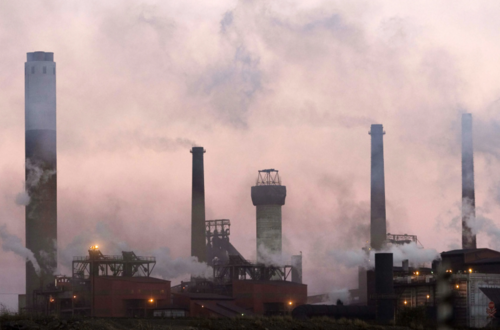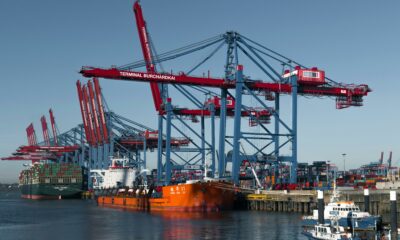Business
How Carbon Border Taxes Could Reshape South Africa’s Economy and Jobs

South Africa faces a crossroads as global climate policies challenge its export industries
South Africa’s export-driven economy is bracing for a major shakeup. According to a recent study by Net Zero Tracker, the rise of carbon border adjustment mechanisms (CBAMs) essentially carbon taxes on imports threatens over 400,000 jobs supported by exports to countries enforcing these measures. With the European Union set to roll out its carbon tax next year, and other big economies like the UK, Australia, and Japan considering similar moves, South Africa’s industries must adapt quickly or risk losing ground in global markets.
The carbon tax challenge hits close to home
Carbon border taxes aim to level the playing field by charging importers based on the carbon emissions embedded in their goods, matching the fees domestic producers face. For South Africa, which depends heavily on coal for about 80% of its electricity and has some of the highest industrial carbon emissions among the world’s biggest economies, this presents a real threat.
The country’s mining and metals sectors, which made up nearly a third of exports in 2023, are especially vulnerable. Their carbon footprint is nearly double that of competitors in similar industries abroad. And the ripple effects could extend beyond metals. South Africa’s automotive sector is one of the world’s most carbon-intensive, while agriculture produces emissions triple those of some peer countries.
Why this matters beyond numbers
Beyond statistics, this means the livelihoods of hundreds of thousands of South Africans hang in the balance. In a country already grappling with high unemployment and inequality, the economic consequences could be severe. Experts warn that unless South Africa accelerates its shift toward cleaner production methods, the country risks losing access to vital export markets.
A stance of protest and a call for fairness
South Africa has joined forces with nations like India and Brazil to push back against these carbon taxes, viewing them as disguised protectionism. The government has even threatened to escalate the issue to the World Trade Organization, seeking a fairer approach that acknowledges the different stages of economic development.
Turning threats into opportunities
But this challenge comes with a silver lining. South Africa sits on some of the world’s richest deposits of critical minerals like manganese and chromium—key components for green technologies such as fuel cells and batteries. With these resources, the country could become a vital player in the global energy transition.
The report suggests that strengthening partnerships with other BRICS countries (Brazil, Russia, India, China, and South Africa) might help build new, greener supply chains. Moreover, South Africa’s abundant sunshine and wind offer huge potential for renewable energy development, which could reduce its carbon intensity dramatically.
International support and local hurdles
The country has already inked an $8.3 billion climate finance deal with wealthy nations, known as the Just Energy Transition Partnership, aiming to ease the shift away from coal. But officials recently highlighted a lack of viable projects ready to attract this funding a bottleneck that could stall progress.
What the public is saying
On social media, many South Africans express concern about job security amid these new global rules. Others emphasize the need for the government to seize this moment to invest in renewables and skills development, ensuring the workforce is ready for a low-carbon future. The consensus is clear: change is inevitable, but it must be managed carefully to protect vulnerable communities.
Carbon border taxes are set to become a defining factor for South Africa’s export economy. While the stakes are high, the country also holds unique advantages to reinvent its industrial base and emerge stronger. Success will depend on swift policy action, international cooperation, and a commitment to sustainable growth that benefits all South Africans.
South Africa’s journey through this climate-driven economic shift will be closely watched by the world. For a nation with deep social and economic challenges, it is more than an environmental issue it is a fight for a just and prosperous future.
{Source: Moneyweb}
Follow Joburg ETC on Facebook, Twitter , TikTok and Instagram
For more News in Johannesburg, visit joburgetc.com



























